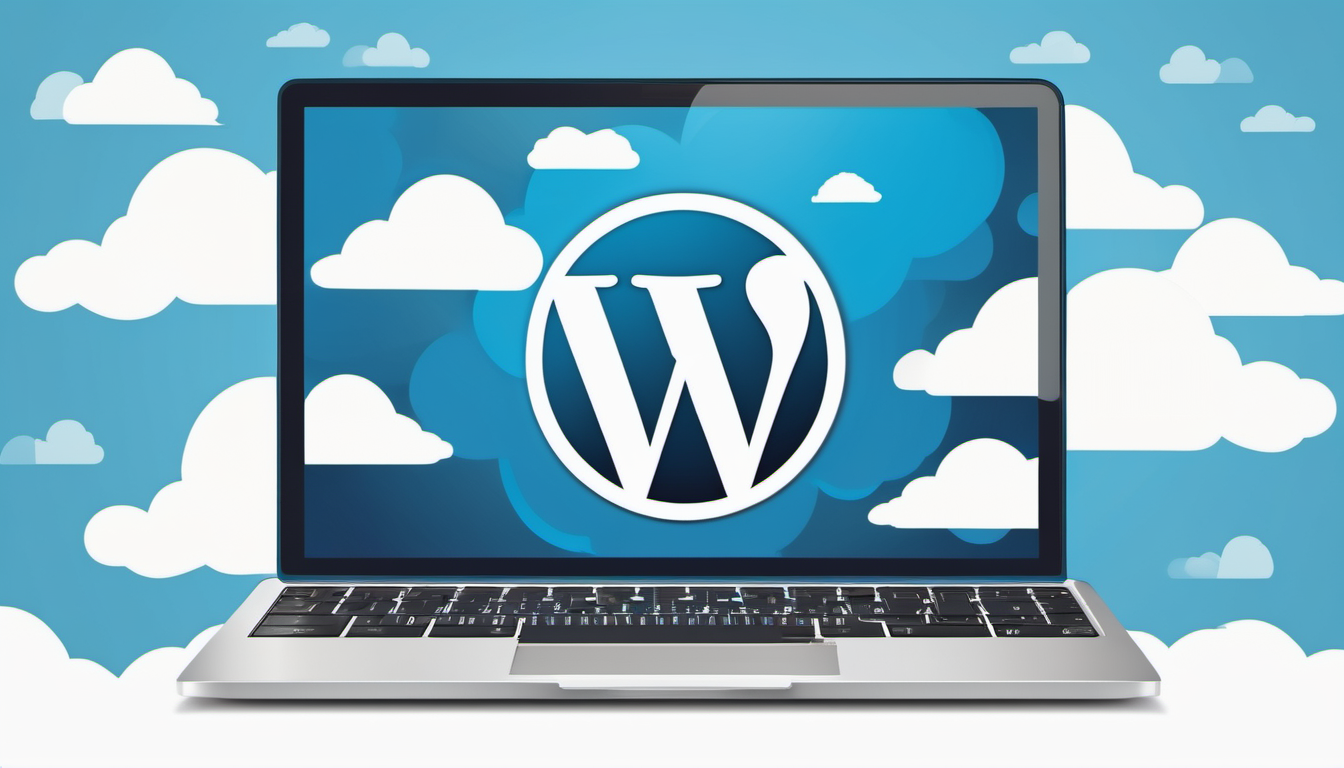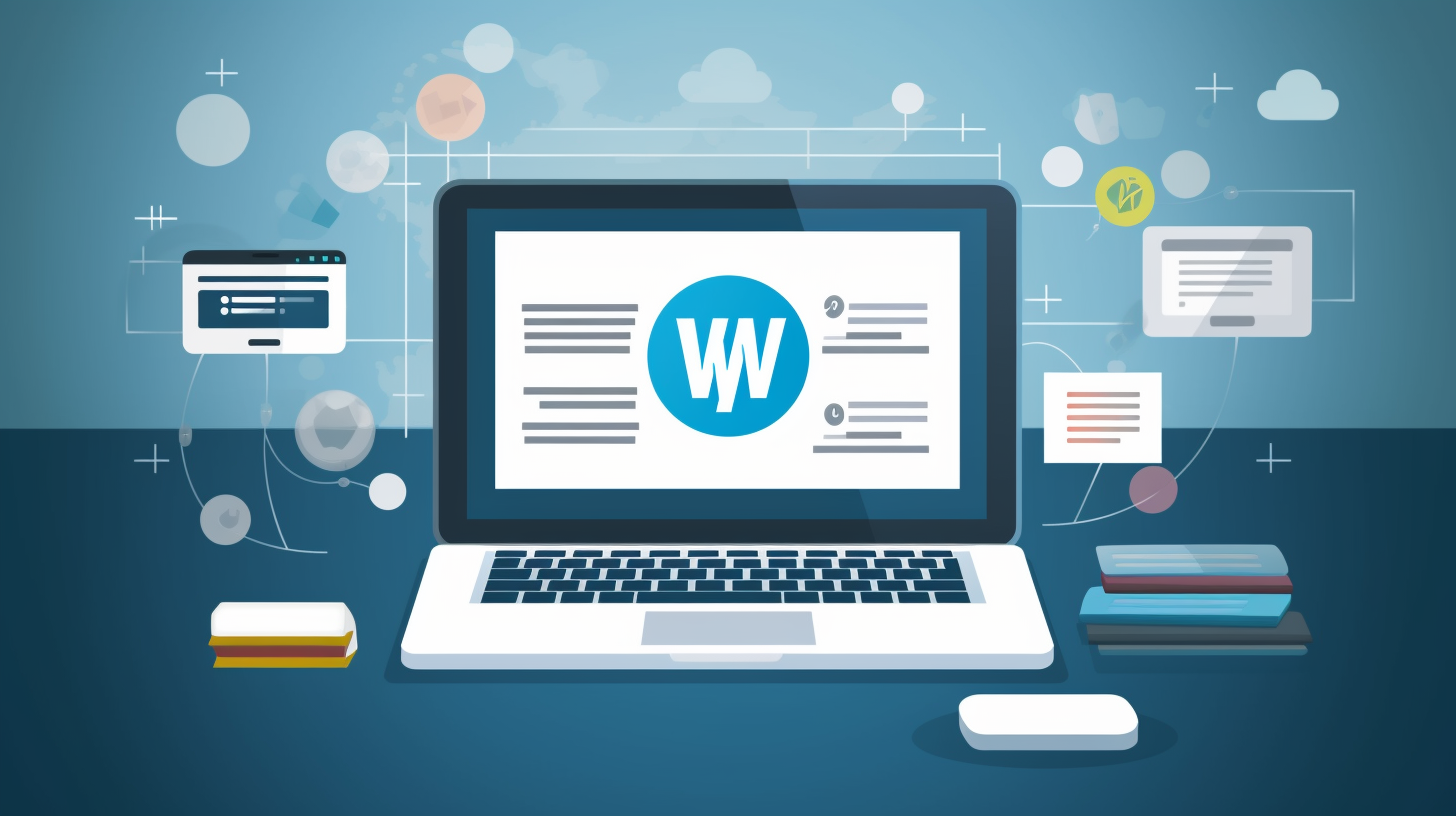欢迎来到使用托管 WordPress 服务高效管理多个客户网站的世界!作为网络专业人士或代理机构,您了解兼顾各种客户及其网站的挑战。跟上更新、安全性、性能优化和协作可能令人不知所措。这就是托管 WordPress 服务可以提供帮助的地方!
在本文中,我们将探讨什么是托管 WordPress 服务,以及它们为何有利于管理多个客户网站。我们还将讨论托管 WordPress 服务的主要特性和功能,以及它们与共享托管的区别。
此外,我们还将提供有用的提示,帮助您选择合适的托管 WordPress 服务提供商,并评估定价、服务水平协议、性能、安全性和支持。我们还将深入探讨高效的网站管理实践、协作和工作流管理,以及扩展和发展托管 WordPress 业务的策略。
此外,我们还将通过实施强大的安全措施、监控网站性能和正常运行时间以及处理 WordPress 更新和插件管理来确保网站的安全性和可靠性。
读完本文后,您将深入了解托管 WordPress 服务如何简化您的工作量、提高客户满意度并促进您的业务增长。那么,让我们深入探索使用托管 WordPress 服务进行高效网站管理的世界吧!
了解托管 WordPress 服务
欢迎来到了解托管 WordPress 服务的部分!如果您是 Web 开发人员或管理多个客户网站,您可能会发现此信息特别有用。在本节中,我们将深入探讨托管 WordPress 服务的定义和优势,探索主要特性和功能,并了解它们与共享托管的区别。那么,让我们开始吧!
托管 WordPress 服务的定义和优势
托管 WordPress 服务是一种专为 WordPress 网站设计的托管服务。它们提供一系列功能和优势,使管理 WordPress 网站更加轻松高效。以下是使用托管 WordPress 服务的一些主要优势:
- 自动更新:托管 WordPress 服务处理所有 WordPress 更新,包括核心软件、主题和插件。这可确保您的网站始终运行最新、最安全的版本。
- 增强安全性:托管 WordPress 服务通常提供高级安全措施,例如防火墙、恶意软件扫描和 DDoS 保护。这有助于保护您的网站免受网络威胁并确保客户的数据安全。
- 性能优化:托管 WordPress 服务通常包括内置缓存、内容分发网络 (CDN) 和其他性能优化工具。这有助于提高网站速度和用户体验。
- 专家支持:借助托管 WordPress 服务,您可以联系 WordPress 专家团队,他们可以帮助您解决任何技术问题或疑问。这样您就可以专注于客户的需求,而不是解决技术问题。
主要特性和功能
托管 WordPress 服务提供一系列特性和功能,以简化网站管理。以下是您可以期待的一些常见功能:
- 一键登台:暂存环境允许您在将网站更改或更新部署到实时网站之前对其进行测试。托管 WordPress 服务通常提供易于使用的暂存功能,可节省您的时间并降低破坏客户网站的风险。
- 自动备份:定期备份对于网站保护和灾难恢复至关重要。托管 WordPress 服务通常提供自动备份解决方案,确保在出现任何问题时可以轻松恢复客户的网站。
- 性能监控:托管 WordPress 服务通常提供性能监控工具,用于跟踪网站正常运行时间、页面加载时间和其他指标。这可让您快速识别和解决任何性能问题。
托管 WordPress 服务与共享托管有何不同
虽然共享主机和托管 WordPress 服务都为 WordPress 网站提供托管服务,但两者之间存在关键差异。以下是托管 WordPress 服务的优势:
- WordPress 优化:托管 WordPress 服务专门针对 WordPress 网站进行了优化,而共享主机则适用于各种平台。这种优化可为您的 WordPress 网站带来更好的性能和安全性。
- 托管更新:使用共享主机,您需要负责手动更新 WordPress、主题和插件。另一方面,托管 WordPress 服务会自动处理更新,确保您的网站始终保持最新且安全。
- 专业支持:托管 WordPress 服务提供与 WordPress 相关问题的专门支持,而共享主机支持可能更为普遍。当您遇到任何网站问题时,随时有 WordPress 专家可以帮您解决。
通过了解托管 WordPress 服务的定义、优势、主要功能和差异,您可以做出明智的决定,为客户的网站选择最佳托管解决方案。在下一节中,我们将讨论如何选择合适的托管 WordPress 服务提供商。
选择合适的托管 WordPress 服务提供商
在有效管理多个客户网站时,选择合适的托管 WordPress 服务提供商至关重要。由于有如此多的选项,在做出决定之前考虑各种因素非常重要。以下是一些关键考虑因素,可帮助您找到完美的提供商:
选择提供商的注意事项:
- 可靠性: 寻找具有良好正常运行时间和可靠性记录的提供商。确保他们拥有冗余系统和备份计划,以最大限度地降低停机风险。
- 可扩展性: 考虑您业务的增长潜力,选择能够满足您业务扩展需求的提供商。寻找提供灵活计划的提供商,以便轻松扩展。
- 定制: 评估您的具体要求并确定提供商是否提供您需要的定制级别。寻找允许您自定义服务器设置、安装插件和访问高级功能的提供商。
- 专业知识: 研究提供商的经验和专业知识。查看其他客户的评论和推荐,以评估他们的知识水平和客户满意度。
评估定价和服务水平协议:
- 成本: 比较不同提供商提供的定价计划,并考虑您所支付的价格是否物有所值。请记住,最便宜的选项在性能和支持方面可能并不总是最好的。
- 服务水平协议 (SLA): 注意提供商提供的 SLA。这些协议概述了支持级别、正常运行时间保证和响应时间。确保 SLA 符合您的期望和要求。
- 支持: 考虑提供商提供的支持类型。寻找提供全天候客户支持、多种沟通渠道和响应迅速的支持团队的提供商。
评估绩效、安全性和支持:
- 表现: 性能是客户网站的关键。寻找提供快速加载服务器、内容交付网络 (CDN) 集成、缓存机制和服务器优化的提供商,以确保最佳网站性能。
- 安全: 管理客户网站时,安全是重中之重。评估提供商实施的安全措施,例如 SSL 证书、防火墙、恶意软件扫描和定期备份。确保他们拥有强大的安全基础设施。
- 支持: 在管理多个客户网站时,快速可靠的支持至关重要。评估可用的支持选项,例如实时聊天、电话支持和票务系统。寻找拥有专门支持团队的提供商,他们可以及时解决您的问题。
通过考虑这些因素,您可以选择一个托管的 WordPress 服务提供商,以满足您的特定需求,并为高效管理多个客户网站提供坚实的基础。在做出决定时,请记住优先考虑可靠性、可扩展性、定制、定价、SLA、性能、安全性和支持。
高效的网站管理实践
在管理多个客户网站时,效率是关键。作为网站开发人员或代理机构,您希望简化流程并优化工作流程,以确保能够有效地管理和维护所有客户的网站,而不会牺牲质量或时间。以下是一些有效的网站管理实践,可帮助您保持井然有序并为客户提供卓越的服务:
简化网站更新和维护
当您需要管理多个客户时,跟踪网站更新和维护任务可能具有挑战性。为了简化此过程并确保万无一失,您可以:
- 创建时间表:制定定期更新和维护每个网站的时间表,同时考虑插件、主题和核心 WordPress 更新等因素。
- 使用网站管理工具:考虑使用网站管理工具,以便您集中管理多个网站的更新。这些工具通常提供一键更新、自动备份和网站健康监控等功能。
- 优先考虑关键更新:首先关注关键的安全更新和补丁,以确保客户网站的安全。
- 制定清单:制定一份清单,列出网站更新和维护所需的所有任务。这将帮助您保持井然有序,确保您不会错过任何重要事项。
自动化备份和安全流程
数据丢失和安全漏洞会对网站及其声誉造成毁灭性影响。自动化备份和安全流程可以帮助您降低这些风险并节省时间。方法如下:
- 实施定期自动备份:为所有客户网站设置自动备份,以确保其数据受到保护。选择提供异地存储的备份解决方案,这样您就可以在安全的位置获得备份副本。
- 使用安全插件:在每个网站上安装强大的安全插件,以帮助防范常见威胁,例如恶意软件和暴力攻击。配置插件以自动扫描漏洞并实施强大的安全措施。
- 监控安全漏洞:实施一个系统来监控您管理的网站上是否存在任何安全漏洞或可疑活动,并向您发出警报。这将使您能够在必要时立即采取行动。
实施性能优化技术
网站速度和性能对于用户体验和搜索引擎优化 (SEO) 至关重要。实施性能优化技术不仅会让您的客户受益,还会提高您管理其网站的效率。请考虑以下策略:
- 优化图片:压缩并调整图片大小,以减小文件大小而不影响质量。这将有助于缩短网站加载时间。
- 启用缓存:使用缓存插件或服务器级缓存来存储网页的静态版本。这可以显著减少页面加载所需的时间。
- 缩小 CSS 和 JavaScript:通过删除不必要的字符和空格来缩小 CSS 和 JavaScript 文件可以帮助减少文件大小并提高网站性能。
- 选择可靠的托管服务提供商:确保客户的网站托管在具有最佳性能和正常运行时间保证的可靠服务器上。优秀的托管服务提供商可以帮助提高网站速度和用户体验。
实施这些网站管理实践不仅可以帮助您高效地管理多个客户网站,还可以确保您提供高标准的服务并取得成果。通过简化流程、自动化任务和优化性能,您可以节省时间和精力,同时保持客户网站的质量和安全性。
协作和工作流管理
在管理多个客户网站时,有效的协作和工作流程管理对于确保顺利运营和及时完成任务至关重要。通过实施正确的策略和使用适当的工具,您可以简化与客户的沟通,高效管理项目和任务,并创建无缝的工作流程。以下是一些需要考虑的关键做法:
与客户有效沟通
清晰一致的沟通对于成功合作至关重要。以下是一些提示:
- 建立沟通渠道: 确定与客户的首选沟通方式,例如电子邮件、电话或项目管理平台。
- 设定期望: 明确定义沟通流程,包括响应时间和可用性,以避免任何误解或延误。
- 定期更新: 定期向您的客户更新其网站的进展情况,及时解决任何疑虑或问题。
- 积极倾听: 通过积极倾听和提出澄清问题,确保您了解客户的需求和目标。
“沟通对那些努力工作的人来说是有效的。”——约翰·鲍威尔
项目和任务管理工具
使用项目管理工具可以大大增强协作和组织。以下是一些值得考虑的流行工具:
- Trello: 一种可视化协作工具,可让您创建板、列表和卡片来跟踪任务并将其分配给团队成员。
- 体位: 项目管理平台使您能够创建项目、任务和子任务、设定截止日期、分配合作者并跟踪进度。
- 大本营: 一个全面的项目管理工具,包括待办事项列表、文件共享、团队消息和集中项目沟通等功能。
这些工具提供透明度、责任感和结构,帮助您和您的客户掌握任务和截止日期。
版本控制和暂存环境
版本控制和暂存环境对于管理网站开发和更新至关重要。它们允许您在将更改部署到实时网站之前对其进行更改和测试。以下是它们重要的原因:
- 版本控制: 帮助您跟踪对网站文件所做的更改,与多个开发人员协作,并在需要时回滚到以前的版本。Git 和 GitHub 是流行的版本控制系统。
- 暂存环境: 在将更改生效之前,提供单独的环境来测试和预览更改。这有助于防止错误并确保无缝的用户体验。
“合作的关键是信任和责任。”——Dawn Montague
协作和工作流管理对于有效管理多个客户网站至关重要。通过实施有效的沟通策略、利用项目管理工具以及利用版本控制和暂存环境,您可以简化流程并确保与客户的成功合作。
现在我们已经探索了协作和工作流管理,让我们继续下一部分: 扩展和发展您的托管 WordPress 业务.
扩展和发展您的托管 WordPress 业务
因此,您已经开始了自己的托管 WordPress 服务业务,并且一切进展顺利。您有一些客户,但现在您想将业务提升到一个新的水平。您想扩大和发展您的客户群,扩展您的服务,并与客户建立长期关系。以下是一些帮助您实现这些目标的策略:
应对日益增加的工作量的策略
- 聘请更多团队成员:随着客户群的增长,独自管理所有网站变得越来越困难。聘请更多团队成员可以帮助分担工作量,让您能够接待更多客户。
- 实施高效的项目管理系统:利用项目管理工具简化工作流程并确保及时完成任务。这将帮助您保持井然有序并更有效地处理更大的工作量。
- 委派任务:学会将任务委派给团队成员。通过为不同的团队成员分配特定的职责,您可以确保所有任务都能高效、有效地完成。
扩大服务和追加销售机会
- 提供附加服务:随着客户需求的增长,请考虑提供附加服务,例如网站设计、内容创建、SEO 优化或社交媒体管理。这不仅可以为您的客户增加价值,还可以为您的业务开辟新的收入来源。
- 向现有客户追加销售:花时间了解客户的目标和目的。确定您的服务可以提供额外价值的领域,并向客户追加销售这些服务。这可以通过定期沟通和针对客户的特定需求提供量身定制的解决方案来实现。
建立长期客户关系
- 提供卓越的客户服务:建立长期的客户关系始于提供卓越的客户服务。及时回复客户询问,解决他们可能遇到的任何问题或疑虑,并竭尽全力超越他们的期望。
- 定期与客户沟通:让客户了解项目进展、行业的任何更新或变化以及您提供的任何新服务或功能。定期沟通有助于建立信任并让客户与您的业务保持互动。
- 倾听客户反馈:积极寻求客户反馈并利用这些反馈改进您的服务。将客户反馈纳入您的业务流程,确保您满足他们的需求和期望。
请记住,扩展和发展托管 WordPress 业务需要时间和精力。通过实施这些策略并专注于为客户提供优质服务,您可以将业务推向新的高度并建立成功且蓬勃发展的企业。
确保网站安全性和可靠性
网站安全性和可靠性是管理多个客户网站的关键方面。作为托管 WordPress 服务提供商,您有责任确保客户的网站免受潜在威胁,并确保网站平稳运行而不会出现任何停机。以下是一些关键做法和策略,可帮助您维护客户网站的安全性和可靠性:
实施强有力的安全措施
- 对所有 WordPress 帐户(包括管理员帐户和具有管理权限的客户帐户)使用强而独特的密码。
- 定期更新 WordPress 核心、主题和插件,以确保安装最新的安全补丁。
- 安装可靠的安全插件,提供恶意软件扫描、暴力破解保护和防火墙保护等功能。
- 启用双重身份验证以提供额外的安全保障。
- 限制登录尝试次数以防止暴力攻击。
- 监控用户活动并接收任何可疑行为的警报。
监控网站性能和正常运行时间
- 使用网站监控工具来跟踪客户网站的正常运行时间和性能。
- 设置警报,以便在网站出现故障或任何性能问题时立即收到通知。
- 通过优化图像、最小化 CSS 和 JavaScript 文件以及利用缓存机制来优化网站加载速度。
- 定期使用 Google PageSpeed Insights 或 GTmetrix 等工具测试网站速度,以确定需要改进的地方。
- 确保您的服务器配置正确并提供足够的资源来处理网站的流量。
处理 WordPress 更新和插件管理
- 定期更新 WordPress 核心、主题和插件,以确保网站运行最新的功能、改进和安全补丁。
- 更新之前,请创建网站备份以减轻任何潜在问题。
- 将更新应用到实时网站之前,先在暂存环境中测试更新。
- 删除任何过时或不必要的插件以降低漏洞风险。
- 定期执行插件审核,以确保所有安装的插件都是最新的、安全的并且与最新版本的 WordPress 兼容。
通过实施这些安全措施并建立监控程序,您可以最大限度地降低网站漏洞的风险,保护客户的数据,并确保其网站拥有可靠、安全的环境。
“网站安全不仅仅在于保护客户的信息;还在于维护他们的在线形象和声誉。”
结论
结论
高效管理多个客户网站可能是一项艰巨的任务,但有了正确的工具和策略,这项工作就会变得容易得多。通过利用托管 WordPress 服务的强大功能,您可以简化工作流程、提高网站性能并确保每个网站的安全性和可靠性。
借助 Managed-WP(一种高级托管 WordPress 云托管平台),您可以将网站管理提升到一个新的水平。他们的专家团队提供 24/7/365 全天候支持,解决您可能遇到的任何问题或疑虑。借助他们简化的基础设施,您可以专注于为客户提供卓越的数字体验。
从定义托管 WordPress 服务的优势到了解主要特性和功能,Managed-WP 可确保您的网站安全无虞。通过选择合适的托管 WordPress 服务提供商、评估定价和服务水平协议以及评估性能、安全性和支持,您可以做出符合业务目标的明智决策。
实施高效的网站管理实践,例如简化更新和维护、自动化备份和安全流程以及优化性能,可以让您保持领先地位。协作和工作流程管理也是必不可少的,通过有效的沟通、项目和任务管理工具以及版本控制和暂存环境,您可以简化与客户的工作。
随着托管 WordPress 业务的发展,您需要制定策略来处理不断增加的工作量、扩展服务和追加销售机会以及建立长期客户关系。如果您拥有正确的工具和技术组合,那么扩展业务会变得更加容易。
确保网站的安全性和可靠性对于您的客户和企业声誉都至关重要。通过实施强大的安全措施、监控网站性能和正常运行时间以及掌握 WordPress 更新和插件管理,您可以建立信任并提供卓越的服务。
总之,要有效管理多个客户网站,需要结合正确的工具、策略和专业知识。通过与 Managed-WP 合作,您可以简化基础设施、提供自由的数字体验,并提供专业的解决问题支持。不要让网站管理的复杂性阻碍您 - 拥抱托管 WordPress 服务的强大功能,将您的业务推向新的高度。
托管WP – 您在高效管理 WordPress 服务方面的合作伙伴。
常见问题
- 使用托管的 WordPress 服务管理多个客户网站有哪些好处?
使用托管的 WordPress 服务,您可以通过提供集中式仪表板访问、自动更新、监控、备份、增强的安全性、可扩展性和专业支持来有效地管理多个客户网站。
- 我可以将现有的客户网站迁移到托管的 WordPress 服务吗?
是的,大多数托管 WordPress 服务提供商都提供网站迁移服务。他们可以帮助您顺利地将现有客户网站迁移到他们的平台,没有任何麻烦。
- 托管的 WordPress 服务如何帮助节省时间和资源?
托管 WordPress 服务可处理软件更新、备份、安全和性能优化等日常任务,从而释放您的时间和资源。这样您就可以专注于为客户提供价值并发展业务。
- 管理多个客户网站的托管 WordPress 服务费用是多少?
托管 WordPress 服务的成本取决于网站数量、流量、存储空间和所需附加功能等因素。服务提供商通常会提供分级定价计划,以满足不同的需求和预算。
- 我可以定制托管的 WordPress 服务来匹配客户网站的品牌吗?
是的,许多托管 WordPress 服务提供商提供白标解决方案,允许您自定义仪表板、电子邮件和品牌以匹配您机构的身份。这可确保您的客户获得一致的品牌体验。
{“@context”:“https://schema.org”,“@type”:“FAQPage”,“mainEntity”:[
{“@type”:“Question”,“name”:“使用托管 WordPress 服务管理多个客户网站有什么好处?”,“acceptedAnswer”:{“@type”:“Answer”,“text”:“使用托管 WordPress 服务可让您通过提供集中式仪表板访问、自动更新、监控、备份、增强的安全性、可扩展性和专业支持来高效地管理多个客户网站。”}},
{“@type”:“Question”,“name”:“我可以将现有客户网站迁移到托管 WordPress 服务吗?”,“acceptedAnswer”:{“@type”:“Answer”,“text”:“是的,大多数托管 WordPress 服务提供商都提供网站迁移服务。他们可以帮助您顺利地将现有客户网站迁移到他们的平台,没有任何麻烦。”}},
{“@type”:“Question”,“name”:“托管 WordPress 服务如何帮助节省时间和资源?”,“acceptedAnswer”:{“@type”:“Answer”,“text”:“托管 WordPress 服务可处理软件更新、备份、安全和性能优化等日常任务,从而释放您的时间和资源。这让您可以专注于为客户提供价值并发展业务。”}},
{“@type”:“Question”,“name”:“用于管理多个客户网站的托管 WordPress 服务的费用是多少?”,“acceptedAnswer”:{“@type”:“Answer”,“text”:“托管 WordPress 服务的费用取决于网站数量、流量、存储和所需的附加功能等因素。服务提供商通常会提供分级定价计划以满足不同的需求和预算。”}},
{“@type”:“Question”,“name”:“我可以自定义托管 WordPress 服务以匹配客户网站的品牌吗?”,“acceptedAnswer”:{“@type”:“Answer”,“text”:“是的,许多托管 WordPress 服务提供商提供白标解决方案,允许您自定义仪表板、电子邮件和品牌以匹配您机构的身份。这可确保为您的客户提供一致的品牌体验。”}}
]}



















